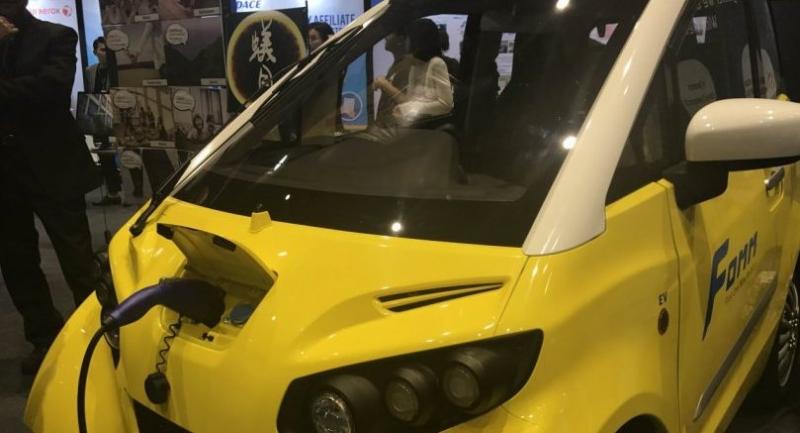EV producers seek bigger tax breaks

FOLLOWING Tesla’s launch of its mass production electric vehicle, investors in Thailand are calling for the government to provide more incentives for consumers to buy EV cars – in line with moves overseas.
After Tesla CEO Elon Musk, launched Model 3 on Friday in California, local insider Tananan Kanjanakuha predicted the event may spark a wave of enthusiasm among consumers who want to own electric vehicles (EV).
Tesla model 3 is priced at $35, 000 (Bt1.2 million) considered by some to be the first mass production model affordable to consumers.
World-wide demand for EV is expected to rise, but demand in Thailand may not rise much due to a lack of tax incentives for consumers to buy EV, said Tananan, the general manager of Fomm (Asia) Co yesterday. In some states of the United States, and many countries in Europe, consumers get a tax break or tax refund if they buy an EV, he said.
In Thailand, government has offered a small excise tax cut, down to 2 per cent from the previous rate of 10 per cent. It is not sufficient, Tananan said, adding that this tax cut would benefit manufacturers but not consumers.
He suggested that the government return to a tax refund similar to the governments 2011 first-car scheme, which allowed consumers to get back money up to Bt100,000 per car. Or the government could offer an annual tax deduction for consumers, Tananan said.
The rationale for a tax cut for consumers is that everyone benefits from the reduced air pollution in big cities like Bangkok when sufficient numbers of people buy EVs.
Tananan’s company, Fomm, is a joint venture between Japanese and Thai investors, plans to manufacturer their own EV in Chon Buri province in the middle of next year.
It would be a compact car designed to be used in the city with range per charge of 160 kilometres and speeds between 60-80 kilometres per hour.
Recharging the batter would take about 6 hours and car owners could charge at home.
The car could carry four passengers, but it would be much more comfortable with two passengers.
Fomm autos could swim if they encountered flooded roads.
The price would be an estimated Bt500,000, which is still expensive for a small car when compared to current polluting cars powered by internal combustion engines, said Tananan.
Due to the high price of manufacturing an electric car’s powerful, it would not easy to achieve lower price. However, battery technology has advanced fast over the past 15 years, reducing costs by 200 per cent so far, Tananan added.
Werachet Khannerng , co-founder of Vera Automotive Co, which also plans to make compact EV car for five passengers with five doors next year, said the current tax system favours hybrid cars. If the government wants to support EVs, they should cut the excise tax on lithium batteries from the current 28 per cent.
Government agencies could budget to buy EV cars for their use, which would help build the industry in Thailand. Vera car’s range per charge will be 180 kilometres and its maximum speed 100 kilometres per hour. It is also designed for city use.
Meanwhile, Natthakorn Utensute, director of the Excise Department’s planning bureau, said introducing tax incentives to encourage consumers to buy EV would depend on the government making it a policy.
EV is one of five new “s-curve’ high technology industries that the government is promoting currently.
For the moment, the low excise tax of 2 per cent is good enough, Natthakorn said.
Before increasing tax incentives, the government would need to take many factors into consideration, he added.
